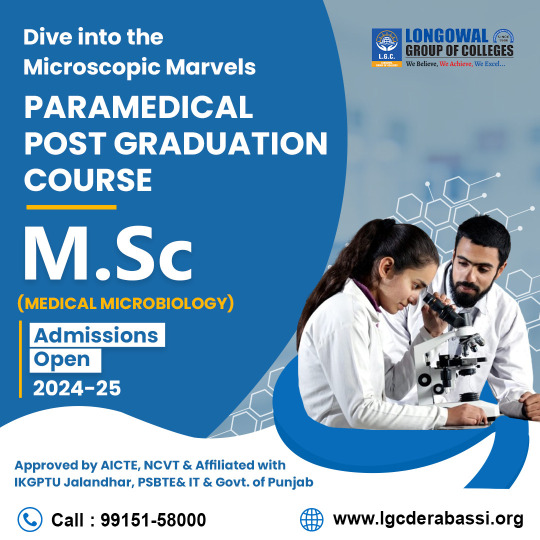#PostGraduation
Explore tagged Tumblr posts
Note
Hi, what are your thoughts on MD Forensic Medicine? (For someone who loves clinicals and interacting with patients)
Hey! I personally chose general medicine specifically because I wanted patient interaction as well as the ability to practice my clinical skills.
With respect to forensic medicine, I don't believe you will get many chances to do that unless you also open your own private practice general clinic. At my college/hospital, FM department has a lot of work to do on the legal side of matters (consulting for the police, acting as professional witnesses, etc), and often the only direct contact they get with patients is by doing autopsies for foul play cases and other criminal/police cases. Live patient contact is less only compared to other 'completely clinical' specialities. I do not know if this is the case everywhere but I suspect so.
However, if you like the legal aspect of medicine, are fine with doing autopsies and are okay with opening a private clinic where you can have patient contact, then FM is worth considering. However, if you absolutely can't see yourself doing autopsies or interacting with law enforcement, or if you absolutely need to have patient contact throughout your working day, then I would suggest against it.
If anyone else has any advice for anon please do chime in! Maybe those who have done forensic medicine (in or out of India), or anyone who knows someone who's done FM?
4 notes
·
View notes
Text
the reality of life after graduation.
youtube
join me on a cynical hike through mont royal.
podcasts that inspired this video, that give much better advice than i do:
"18. The Psychology of Big Life Changes" by The Psychology of your 20's (https://open.spotify.com/episode/6ZZZiFtQWJ3DbzzV2KmqVb)
"the post grad flop era | Ep. 55" by Growing With The Flow (https://open.spotify.com/episode/4UPQ7PUpGGOxhKTWxbGrXF)
#video#university#college#universitylife#graduation#postgraduation#jobhunt#lawschool#flopera#postgraduatestudies#postgradlife#jobsearch#careerdevelopment#worklife#lifetransitions#adulting#selfimprovement#mentalhealth#quarterlifecrisis#findingpurpose#depression#genz#nihilism#Youtube
6 notes
·
View notes
Text
38/365
I have become so used to the academic environment, to have every little step I made under constant scrutiny, to be graded on everything and anything I did from kindergarten till university, that now I cannot seem to be able to live in the outside world anymore.
I could work myself to exhaustion on my projects, yet, without any feedback, I feel as if I have accomplished or learned nothing.
I am literally addicted to judgment.
I feel as if my worth as a person only lays in my academic achievements and as if those only matter inside the academic world, and that now that I have been thrown in the real world I amount to nothing. I simply feel powerless and useless.
#post graduation depression#postgrad depression#postgraduation#tmd2k23#project365#365challenge#365daysofwriting#random toughts#diary entry#personal writing#personal diary#diaryposting
2 notes
·
View notes
Text
instagram
#LifeAfterGraduation#CareerGrowth#NewBeginnings#jksgroup#SuccessTips#MentalHealthMatters#FinancialWisdom#ProfessionalNetworking#EmbraceChange#CareerAdvice#PostGraduation#FutureReady#SkillBuilding#PersonalGrowth#GraduationJourney#NextChapter#JobSearch#CareerGoals#YoungProfessionals#SelfCare#WorkLifeBalance#Instagram
0 notes
Text
A Student’s Guide to Choosing the Perfect BA College in Jaipur
Choosing the perfect BA college in Jaipur is an important decision that can shape your academic and professional future. Jaipur, known for its rich cultural heritage, offers a variety of reputable colleges with diverse programs and specializations in the Bachelor of Arts (BA) degree.
1 note
·
View note
Text

This article delves into the best time to start NEET PG preparation, offering insights and strategies to help you plan effectively.
Topic: What is the best time to start NEET PG Preparation? Link: https://gsmedicalcollege.in/best-time-to-start-neet-pg-preparation.php
#NEETPG#Postgraduation#MedicalCollege#BestMedicalCollegeinUP#GSMedicalCollege#Ghaziabad#DelhiNCR#UttarPradesh#India
0 notes
Text
Living at Home Post-Graduation
It sounds lame out of context
Caveat: you have a genuinely loving and supportive family to live with
You don’t have to grocery shop, but definitely eat out more
Working two-three jobs is possible so you make bank
All of your stuff is here, you didn’t leave anything “at home”
All of your pets are here so you don’t have to keep asking for pictures of them
Is this what my sexy career looks like at 23 years old? I feel like no
After a drunken night out you still return to a house with your parents which destroys the whimsy of it
No bringing people home by that account
Caveat: Sharing a room with your younger sister = best friends but no privacy
Not having a space to yourself is bad at times, but thank god for headphones
No extensive social life? Just play video games, my man
It’s been over a year and the time has really flown by. Can’t let another year go by like that
In this day and age you either post about your life actively on Instagram or you don’t
You have the same amount of hours in your day as Beyoncé! That’s been said recently and seems very funny
Storage space is incredible because it’s a whole house
Depressive episodes are REALLY apparent, see the privacy note above
All of your books are here, no more moving them back and forth in heavy boxes (yes you can also own a kindle but it’s not as fun)
1 note
·
View note
Text
In this digital age, technology has become the backbone of our society. And, to stay ahead in this rapidly evolving world, it’s essential to have an advanced understanding of technology. This is where a Master of Technology (M.Tech) degree comes into play.
If you aim to excel in the technology field, the M.Tech program is your stepping stone. In this comprehensive guide, we bring you all the vital details about the M.Tech admissions 2024.
M.Tech Admissions 2024: An Overview
The Master of Technology (M.Tech) is a highly coveted postgraduate program that offers specialization in various technology and engineering disciplines. This program is designed to provide in-depth knowledge and practical skills in specialized engineering domains. M.Tech aspirants must stay updated with the M.Tech admissions 2024 important dates, eligibility criteria, offered programs, and more.
1 note
·
View note
Text
youtube
B.Tech Specialization | Mechanical Engineering | Civil Engineering | Electronics Engineering Aerospace Engineering | Agricultural engineering | Electrical engineering | Engineering | Education | Graduation | BTech | MTech Mrs. Rajni Bhasin
Founder Director
MERAKI SCHOOL OF HIGHER EDUCATION
+91 9910 468 238
Aggarwal Prestige Mall, 5th Floor-512,
Rd. Number 44, Rani Bagh, Pitampura,
Delhi-110034
0 notes
Text
M.Sc in Medical Microbiology at Longowal Group of Colleges! 🎓

🔬 Dive into the Microscopic Marvels with M.Sc in Medical Microbiology at Longowal Group of Colleges! 🎓 🌟 Admissions for the 2024-25 academic year are now OPEN! 🌟 Embark on a journey of discovery in the fascinating world of microorganisms and their impact on health and disease. Our comprehensive postgraduate program equips you with the knowledge and skills needed to excel in the field of medical microbiology. Why choose Longowal Group of Colleges? ✅ State-of-the-art facilities ✅ Experienced faculty ✅ Hands-on practical training ✅ Industry-relevant curriculum ✅ Career guidance and placement assistance Don't miss this opportunity to pursue your passion for microbiology and advance your career in healthcare. Apply now and be part of our esteemed academic community! For admissions and inquiries, visit our website or contact us today. 𝑃𝑙𝑠 𝐶𝑜𝑛𝑡𝑎𝑐𝑡 𝐿𝑜𝑛𝑔𝑜𝑤𝑎𝑙 𝐺𝑟𝑜𝑢𝑝 𝑜𝑓 𝐶𝑜𝑙𝑙𝑒𝑔��𝑠. 𝐷𝑒𝑟𝑎𝑏𝑎𝑠𝑠𝑖,𝐷𝑖𝑠𝑡𝑟𝑖𝑐𝑡 𝑀𝑜ℎ𝑎𝑙𝑖, 𝑁𝑒𝑎𝑟 𝐶ℎ𝑎𝑛𝑑𝑖𝑔𝑎𝑟ℎ. 𝐶𝑎𝑙𝑙 9915158000 𝑤𝑤𝑤.𝑙𝑔𝑐𝑑𝑒𝑟𝑎𝑏𝑎𝑠𝑠𝑖.𝑜𝑟𝑔
#MedicalMicrobiology#PostGraduation#AdmissionsOpen#LongowalGroupOfColleges#ApplyNow#Microbiology#HealthcareEducation#ScienceEducation#HigherEducation#CareerInMicrobiology#MedicalScience#Admissions2024#LongowalCollege#MicroscopicMarvels#MedicalMicrobes#ResearchOpportunities#FutureInHealthcare
0 notes
Text
Breaking Barriers: Your Guide to Obtaining a Study Visa for Canada
Canada, with its diverse culture, excellent educational institutions, and vibrant communities, has emerged as a sought-after destination for international students seeking quality education and enriching experiences. Acquiring a study visa for Canada is the gateway to accessing these opportunities, but the process can seem daunting. In this article, we delve into the intricacies of obtaining a study visa for Canada, providing essential insights and guidance for aspiring students.

Understanding the Study Visa Process:
Before embarking on the journey of securing a study visa for Canada, it's crucial to understand the process involved. The Canadian government offers various study permit programs catering to different types of learners, including university students, vocational trainees, and language school attendees. Applicants must familiarize themselves with the specific requirements and eligibility criteria corresponding to their chosen program.
Essential Documentation:
A comprehensive application package is fundamental to a successful study visa application. Essential documents typically include a letter of acceptance from a Designated Learning Institution (DLI), proof of financial support to cover tuition fees and living expenses, a valid passport, and evidence of a clean criminal record. Additionally, applicants may need to undergo a medical examination and provide biometrics as part of the application process.
Financial Considerations:
Financing one's education in Canada is a crucial aspect of the study visa application. International students must demonstrate sufficient funds to cover tuition fees, living expenses, and other incidental costs. While scholarships and financial aid opportunities exist, it's essential to have a solid financial plan in place to support oneself throughout the duration of the study program.
Language Proficiency:
Proficiency in English or French is vital for academic success and integration into Canadian society. Depending on the chosen program and institution, applicants may need to provide proof of language proficiency through standardized tests such as IELTS or TOEFL. Adequate preparation and practice are essential to achieve the required scores, ensuring a smooth transition into Canadian academia.
Health Insurance:
Healthcare coverage is a critical consideration for international students studying in Canada. While some provinces offer publicly funded healthcare for eligible residents, most international students are required to obtain private health insurance coverage. It's imperative to research and secure appropriate health insurance plans to safeguard against unexpected medical expenses during the course of study.
Working Opportunities:
Many international students choose Canada not only for its academic offerings but also for its ample opportunities for part-time employment and post-graduation work. Study visa holders are typically allowed to work part-time during the academic year and full-time during scheduled breaks. Additionally, Canada's Post-Graduation Work Permit Program (PGWPP) allows eligible graduates to gain valuable work experience in Canada after completing their studies.
Conclusion:
Securing a study visa for Canada opens the door to a world of opportunities, from top-tier education to cultural enrichment and professional growth. By understanding the intricacies of the application process, preparing diligently, and adhering to all requirements, aspiring students can embark on their Canadian educational journey with confidence. With proper planning and guidance, the dream of studying in Canada can become a reality, paving the way for a bright and promising future.
#Canada#StudyVisa#InternationalStudents#EducationAbroad#Immigration#VisaProcess#StudyAbroad#FinancialPlanning#LanguageProficiency#HealthcareCoverage#WorkOpportunities#PostGraduation#StudentLife
0 notes
Text
Orphans | Single Parent Children | Jyoti Prakash Scholarship & Mentorship Program | 2023 | 2024
youtube
#tnsfrbc#jyotiprakash#scholarships#mentorship#program#20232024#education#students#schools#graduate#graduation#postgraduates#postgraduation#mentorshipprogram#buddy4study#trendingvideos#trendingshorts#aiyf#aiobcsa#obc#reservation#bc#chennaifloods2023#howtoapply#intamil#inenglish#animation#animaker#avatar#Youtube
0 notes
Text

#mitsde#distance mba#distance learning#pgdm#distance education#distance learning mba#distance courses#distancelearning#pgdm course#pgdm colleges#distance pg courses#pg course#pg online#pg courses#pg programs#one year post graduation courses in management#post grad courses#postgraduation#post graduate#online learning#online marketing#mba programs#mba#mbacollege#online mba
0 notes
Text
Empower Your Career with a PGDM in Big Data Analytics
Welcome to the world of Big Data Analytics! With the ever-increasing volume of data being generated daily, there is a growing need for professionals with the ability to harness the power of data to drive business decisions. A PGDM in Big Data Analytics is the ideal way to prepare for a career in a rapidly growing field.
The early 2000s saw the origin of Big Data Analytics, with organizations beginning to collect vast amounts of data from different sources. Over time, it has become an indispensable tool for gaining a competitive edge and making informed decisions for organizations. Big data analytics acceptance is prevalent, with the ever-increasing demand. The future looks exciting, with enormous potential for Big Data Analytics as emerging technologies such as artificial intelligence and machine learning offer more profound insights from data.
Pursuing a PGDM in Big Data Analytics equips you with the knowledge & skills needed to excel in this exciting field. Here is everything required to know about big data analytics.
What is Big Data Analytics?
Large data sets are gathered, examined, and analyzed through big data analytics to find market trends, patterns, and insights that can aid businesses in making more informed decisions. Companies may create plans swiftly and efficiently with this information, maintaining their competitive advantage.
Businesses use business intelligence (BI) tools and systems to collect structured and unstructured data. Input from users in tools helps to understand corporate performance and operations. The four data analysis techniques that big data analytics employ enable us to find significant insights and develop solutions.
Importance of Big Data Analytics
Big data analytics is crucial because it allows organizations to leverage their data to identify opportunities for improvement & optimization. It allows increasing lead efficiency to overall more intelligent operations across different business segments, higher profits, & satisfied customers. Big data analytics aids companies in reducing costs and developing better, customer-centric products and services.
Data analytics provides insights that improve the way society functions. In health care, big data analytics aids in keeping track and analyzing individual records but plays an instrumental role in measuring COVID-19 outcomes on a global scale. It informs health ministries within each nation's government in ways to proceed with vaccinations and device solutions for mitigating pandemic outbreaks in the future.
Read More : Accelerate Your Career with a PGDM in Data Analytics
Types of Big Data Analytics
1. Descriptive Analytics
Descriptive analytics is one of the most popular tools businesses use to monitor current trends and operational performance. One of the earliest steps in analyzing raw data involves creating assertions about samples and measurements and conducting basic mathematical operations. The other sorts of analytics can be used to discover more about the causes of trends you've discovered with descriptive analytics.
For finances, production, and sales, you must employ descriptive analytics. Creating financial reports and metrics, surveys, social media campaigns, and other business-related assignments are among the tasks that call for this kind of analytics.
2. Diagnostics Analytics
Diagnostic analytics is one of the most advanced big data analytics you may employ to examine data and content. Using the knowledge you collect, you can answer the question, "Why did it happen?" with this kind of analytics. Therefore, by evaluating data, you may understand the causes of specific actions and occurrences related to your business, its clients, team members, goods, and more.
Even though you haven't changed your marketing, imagine that a product's sales have changed significantly. You would employ diagnostic analytics to locate the cause of this change and pinpoint this anomaly.
3. Predictive Analytics
As the name implies, this data analytics focuses on creating predictions about potential outcomes based on data insight. It extensively uses advanced predictive tools and models, including machine learning and statistical modelling, to achieve the greatest results.
Predictive analytics' key advantage is its ability to foretell the future with greater accuracy and dependability. Companies may manage shipment schedules, stay on top of inventory needs, and identify methods to save and make money using the predictions generated by these analytics.
4. Prescriptive Analytics
Through numerous simulations and approaches, prescriptive analytics uses descriptive and predictive analysis findings to develop solutions for improving business practices. It recommends the company's best next move based on data insights.
Prescriptive analytics can enhance processes, campaigns, strategies, production, and customer service, among other things. This kind of analytics aids manufacturers in better comprehending the market and predicting its future state through statistics and models. It also helps them establish clear priorities and determine which action will result in greater financial rewards.
Program Objectives of PGDM in Big Data Analytics
To familiarize the students with the expanding role of big data and analytics and to make conclusions about how these factors impact managerial judgment at various levels of management.
To operate in various data-driven businesses, such as E-commerce, banking and financial services, customer relationship management, operations, supply chain, and healthcare, among others, one must have analytical skills.
Creating frameworks for analyzing and synthesizing the results of analytical models, strategies, and their application in different industries.
Improving capabilities to develop students' capacity to work in technology-driven contexts.
Developing for organizations or enterprises the most effective data-driven creative methods
Opportunity for exciting job roles and opportunities In MNCs and tech companies as Data Scientist, Data Analyst and Business Analyst.
Closing Thoughts
Looking to pursue a PGDM in Big Data Analytics? Asia Pacific Institute of Management (AIM) is an excellent choice. AIM's comprehensive curriculum covers various topics, and the experienced faculty ensures students gain practical insights into the industry. The institute provides excellent resources, including technology labs and a well-stocked library with a dedicated placement cell to help students excel in their careers and unleash their potential.
By choosing AIM, you'll be equipped with the skills & knowledge needed to thrive in the rapidly growing field of Big Data Analytics. Don't wait – join the Asia Pacific Institute of Management and take the first step towards a successful career in this exciting field.
1 note
·
View note
Text

Take your overseas education experience to the next level. Study in the UK at world-ranked universities. Submit your application for the January 2024 intake. ‼️ Advantages‼️ ✔️ With IELTS ✔️ 2yrs of PSW ✔️Get Scholarship Up to 5 Lakh ✔️ High Visa Success Ratio Book Your Slot For Free Counseling 📩[email protected] 📲 092052 11884
#studyoverseas#internationaleducation#overseaseducation#postgraduation#studentvisa#studyuk#rankeduniversities#JanuaryIntakes#abroad#visa#uk#ielts#scholarshipopportunities#student#research#masterdegree#internationalstudents#studyabroad#postgraduatestudies#seminar#applynow#admissionopen#studyinuk#studygram#pgcourses
0 notes